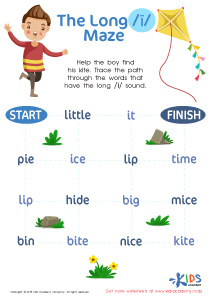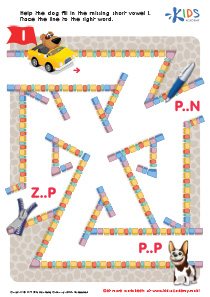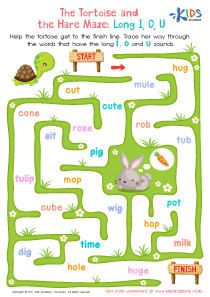Extra Challenge Short Vowels Worksheets for Ages 6-8
4 filtered results
-
From - To
Our Extra Challenge Short Vowels Worksheets for Ages 6-8 offer an engaging way to bolster literacy skills. Tailored for young learners, these worksheets provide a variety of exercises to enhance short vowel recognition and usage, making phonics learning fun and effective. Kids will navigate through enjoyable activities designed to challenge their understanding of vowel sounds, reinforcing their ability to read and spell. Ideal for early grade students, our resources feature colorful illustrations and playful formats to keep children motivated. Dive into a world of words and vowels with our expertly-crafted worksheets that spark a love for reading and learning!
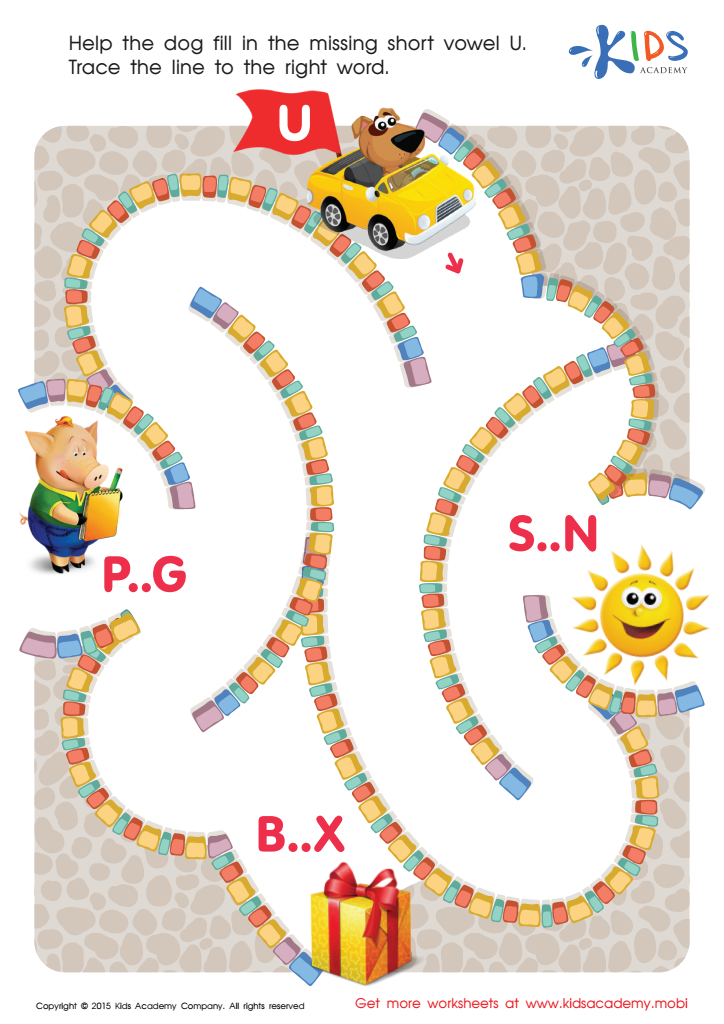

Short Vowel Sound U Worksheet
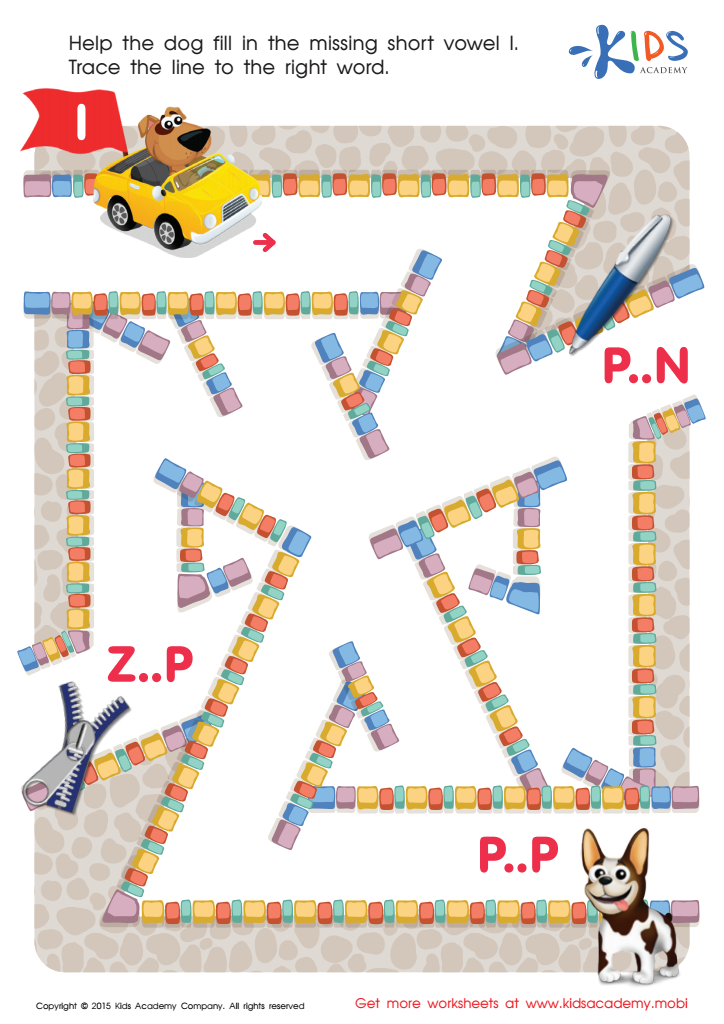

Short Vowel Sound I Worksheet
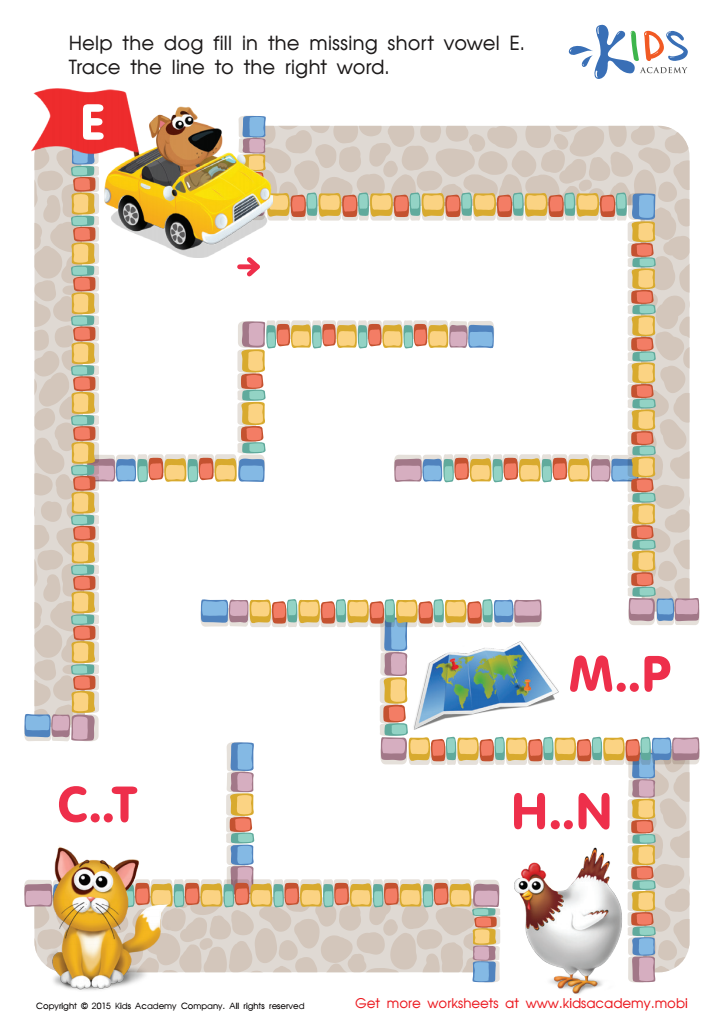

Short Vowel Sound E Worksheet
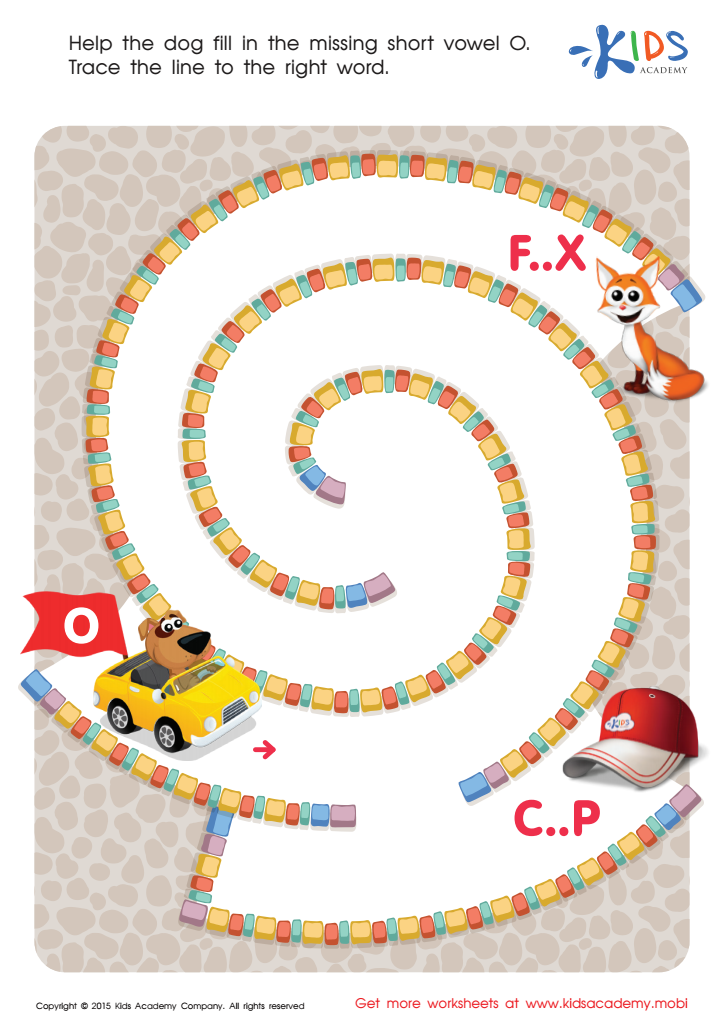

Short Vowel Sound O Worksheet
Supporting children aged 6-8 with extra challenges in short vowels is crucial for several reasons. Short vowels form the foundational sounds in many basic words. Mastering these helps kids decode words more efficiently, thereby improving their reading fluency and confidence. At this age, children are at a critical point where they transition from learning to read to reading to learn. Any gaps can hinder this progress and may modify their long-term academic trajectories.
When parents and teachers pay attention to short vowel challenges, they contribute significantly to a child’s early education success. Focused strategies like repetitive practice, phonics exercises, and engaging activities tailored to short vowels can transform struggles into strengths. By addressing these at an early stage, you prevent future issues in spelling, reading comprehension, and even writing.
Moreover, early intervention fosters a supportive learning environment. Children feel encouraged and less frustrated, reflecting positively on their self-esteem and academic behaviors. Centering on short vowels also nurtures a love for reading, enriching their vocabulary and ability to self-teach through books.
In summary, prioritizing extra challenges in short vowels equips children with essential literacy skills, creates lifelong learners, and sets the stage for a fruitful educational journey.

 Assign to the classroom
Assign to the classroom


